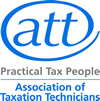 Call us now on 01926 633074
Call us now on 01926 633074

Jeff West is licensed and regulated
by AAT under licence number 13


Employer or Personal Pension Funding?
Newsletter issue - May 2012.
Who should pay contributions into your pension fund: you or your employer? If you control the company you work for, the most tax efficient solution is almost certainly for the company to pay as your employer.
The company can set a reasonable level of pension contributions against its profits subject to corporation tax (at 20%, 24% or 25%), and it pays no employers' NI charges on those pension contributions. A 'reasonable level' is where the salary plus benefits, including pension contributions, form a commercially reasonable remuneration package for the work done. As long as the total package is set at a commercial level or below, the company can receive tax relief for the remuneration payments.
If you pay pension contributions as an employee, you need to extract the funds from your company. If you do this by a salary, this creates an income tax charge in your hands. The company receives tax relief on salary payments but it must pay employers' NICs at 13.8%, with no upper limit. You are also subject to NICs on your salary at 12%, which then reduces to 2% on salary over £42,475 per year. So unlike pension contributions paid directly by the company, salary payments carry NICs of up to 25.8%.
If you take dividends from the company to pay your pension contributions, there are no NICs payable by you or the company. But the company does not receive tax relief on the payment of dividends. So the only tax relief due on the pension contributions is due at your marginal tax rate, on up to 100% of your earned income, capped by your annual allowance (see below). Dividends are not earned income, so if you only take dividends and no salary or other employment benefits from your company, the tax relief on your pension contributions is limited to £3,600 per year, which is the maximum for a person with no earned income.
Your annual allowance caps the amount of your pension contributions which attract tax relief. If this allowance is exceeded by pension contributions paid by you or your employer, you will pay a tax charge at your marginal rate. The annual allowance is now £50,000 per year, but this is extended by unused allowances brought forward from the previous three tax years. Thus the exact amount of annual allowance will be different for each individual, depending on his or her pattern of pension contributions.
We can help advise you on this for your own specific circumstances.
 Cookies are small text files that are stored on your computer when you visit a website. They are mainly used as a way of improving the website functionalities or to provide more advanced statistical data.
Cookies are small text files that are stored on your computer when you visit a website. They are mainly used as a way of improving the website functionalities or to provide more advanced statistical data.













